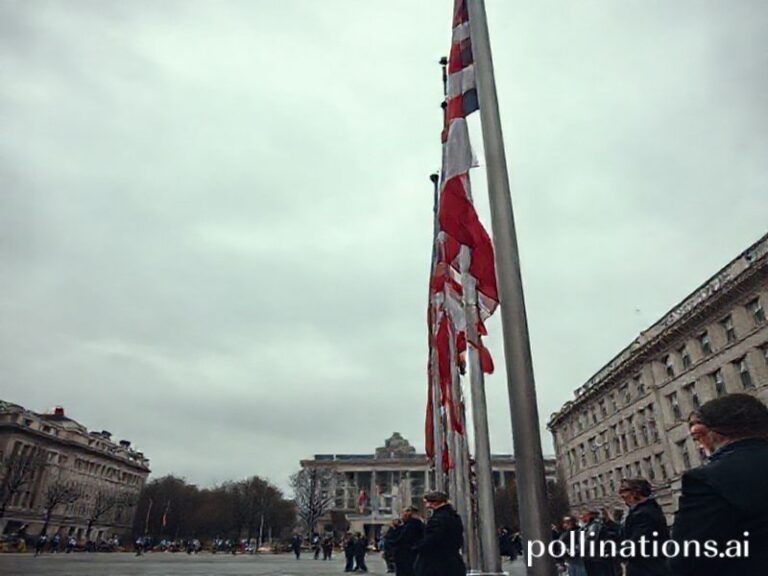victoria station
Victoria Station: The World’s Most Overqualified Waiting Room
By Our London Correspondent, nursing a tepid flat white and existential dread
London, UK – Somewhere beneath the ornamental pigeons and the low, grey sky that passes for weather here, Victoria Station yawns open like a bored Leviathan. Every minute, 2,000 fresh pilgrims—armed with wheelie bags, misplaced confidence in contactless payments, and the faint hope that the 17:43 to Brighton still exists—plunge into its tiled maw. They emerge, if they emerge at all, blinking at the rain and wondering why the United Kingdom’s fifth-busiest rail hub feels like a pop-up simulation of global geopolitics.
Let’s zoom out, as the security cameras do. Victoria is not merely a place where British commuters practice the national pastime of muttered apology; it is a diplomatic microclimate. Overhead, the roof is held together by Victorian iron, Chinese steel reinforcements, and the quiet prayers of EU structural engineers who left after Brexit paperwork turned their visas into origami. Below, the Circle and District lines rattle past like UN subcommittees in perpetual disagreement over schedule adherence. Somewhere in the concourse, a Costa Coffee franchise does the foreign-exchange work of a small sovereign wealth fund, converting Colombian beans, Italian branding, and Bahraini capital into British indigestion. It’s globalization, but with extra sprinkles.
The station’s most honest ambassador is the departure board, a digital oracle that speaks in riddles. “Delayed—awaiting train crew” translates roughly to “the gig-economy driver overslept in Luton.” “Cancelled—leaf on line” is British for “our infrastructure is held together by duct tape and folklore.” Yet the board’s greatest trick is demographic: it lists destinations like Brighton, Gatwick Airport, and, on timetables that read like ransom notes, “Paris via coach replacement service”—a phrase that could sour diplomatic relations on its own. Each delay ripples outward. Miss the 19:02, and a tech contractor from Mumbai sleeps in a Premier Inn instead of closing a deal in Berlin. A Spanish au pair spends her first night on British soil inhaling diesel fumes and clutching a stuffed Paddington Bear like a flotation device. Victoria, in other words, is where first-world problems go to apply for refugee status.
Security theatre plays nightly. Armed police stroll past Pret A Manger with the swagger of UN peacekeepers who know their tour ends at 5 p.m. sharp. Their rifles—German engineering, American optics—are pointed at nothing in particular, unless you count the seagull that once stole a tourist’s tuna baguette and became, for one glorious afternoon, the station’s most wanted. Meanwhile, the actual threats shuffle by undetected: an investment banker muttering about shorting the pound, a tourist whose suitcase is 90% duty-free Toblerone, and the existential dread that leaks from the ceiling whenever it rains inside, which is always.
Victoria’s retail strip is a miniature WTO summit. WHSmith sells newspapers lamenting the death of print, right next to a rack of magazines promising “Ten Ways to Live Off-Grid.” Boots the chemist offers flu jabs and meal-deal sushi, a combo that feels like a wager on human resilience. And, in the corner, a currency exchange booth displays rates so punitive they could be sanctioned by the IMF. Here, the Thai baht is humbled, the Turkish lira begs for mercy, and the British pound sterling practices its best imperial nostalgia, pretending it’s still 1899 and the queue is for the Orient Express.
Of course, the station’s true export is time—specifically, the hours it steals. Economists calculate that delays at Victoria cost the UK economy £75 million a year, but that figure omits the psychic toll. Multiply every sigh, eye-roll, and muttered “for f— sake” by the global passenger mix and you’ve got enough wasted life force to power a midsize Scandinavian city. Somewhere in Davos, a consultant is pitching this as “crowdsourced mindfulness,” which tells you everything about Davos.
And yet, for all its dysfunctions, Victoria abides. It is the place where the world rehearses patience, practices queue etiquette, and learns that “sorry” is less an apology than a passport stamp. One day the roof will finally cave in, or the Thames will reclaim its marshlands, and future archaeologists will find Oyster cards fossilised next to Roman coins, proof that empires rise, fall, and still charge peak fares after 6:30 p.m.
Until then, the departures board blinks on: “Next train 3 minutes (probably).” The planet keeps spinning, slightly off-schedule, and Victoria—ever the modest host—offers plastic chairs and the faint promise that somewhere, eventually, there is a platform with your name on it. Probably.







